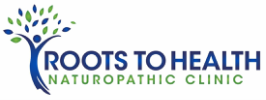Allergies are a reaction from your body’s immune system to a nonthreatening foreign substance (ie. grass, dust, pollen) causing annoying and sometimes life threatening physical symptoms. There are different types of allergies or immune reactions and in this newsletter we will only be covering the seasonal allergies that are mediated by a substance from your immune system known as IgE. The body releases IgE in response to the foreign material leading to a release of histamine from mast cells ultimately causing those familiar symptoms of itchy, watery eyes, runny nose, sneezing, scratchy throat and blocked sinuses.
Note: Anaphylactic reactions can be fatal and if you are experiencing any difficulty breathing or feeling of the throat closing seek immediate medical attention.
What can you do to reduce allergy symptoms?
The following ideas may help reduce the symptoms you experience during the allergy season and are in no particular order. Always consult a health professional before beginning any supplement regime.
1. Local Honey – It has been theorized that a spoonful of local honey will contain most, if not all of the local pollens in minute doses. Taking a few spoonfuls of this honey may desensitize the body to the pollens leading to a reduction of symptoms. Also, it is delicious.
2. Quercetin – A compound found in many fruits and vegetables as well as black and green teas. It acts as a mast cell stabilizer to limit the release of histamine and lessen the severity of the allergic reaction. It is best if taken every day starting a few weeks before the beginning of the allergy season and throughout. Food sources high in Quercetin:
- Apples
- Citrus fruits
- Onions
- Parsley
- Green or Black tea
- Beans
- Blueberries or Blackberries
- Leafy green vegetables
3. Vitamin C – Helps regulate the immune system and decrease its overreaction to non-harmful substances. Below is a list of the best sources of Vitamin C:
- Papaya
- Bell Peppers
- Strawberries
- Broccoli
- Pineapple
- Brussels Sprouts
- Kiwi fruit
- Oranges
- Cantaloupe
- Kale
4. Nasal Rinse/Neti Pot – This will help keep your sinuses clear and avoid the accumulation of allergic materials in the nasal passages. Ensure you use filtered water with saline.
5. Bromelain – Acts as an anti-inflammatory agent and is often paired with quercetin to increase absorption and effect. The most common source of bromelain comes from the stem of pineapple.
6. Stinging Nettle (Urtica dioica) – Taken in the form of a tea or tincture, this herb has great anti-allergic and anti-inflammatory activity. It is also very nourishing to the body.
7. Butterbur (Petasites hybridus) – Has been shown to reduce allergic symptoms without causing the sedative effects of anti-histamines.
8. Probiotics – Multiple “friendly” bacterial strains and adequate dosing of probiotics will help regulate immune function.
9. Rosemary (Rosmarinus officinalis) – Rosemary contains rosmarinic acid which has anti-allergic, anti-inflammatory and anti-microbial activity. It is also a great anti-oxidant and the spice can be easily added into any meal.
10. Avoidance – By far the most effective treatment, but not always possible.
Trying these simple steps at home may help you in your quest to combat those irritating allergy symptoms during the peak season. It is always a good idea to consult your local health care provider for further treatment and support and to ensure that you are taking the proper doses of the right supplements for your individual case. Now it is time to step away from the computer and support your body’s immune system so you can get outside and enjoy nature to its fullest.

 RSS Feed
RSS Feed